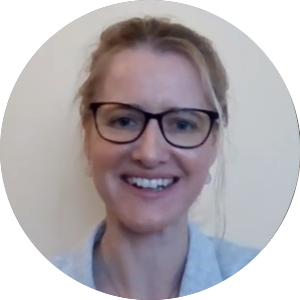Lack of time is the most common barrier to evidence-based physiotherapy. Many factors contribute to this, including a high workload, competing priorities, efficiency in all 5 steps of evidence-based physiotherapy (Ask, Acquire, Appraise, Apply, Assess), lacking resources, lacking confidence, and being overwhelmed by the amount of evidence and the process of changing practice.
Last month ten clinicians shared some strategies they use to overcome the barrier of lack of time. This month seven more clinicians talk about how they tackle the time barrier for the #PEDroTacklesBarriers to evidence-based physiotherapy campaign.

John Tan
Singapore General Hospital, Singapore
John recommends finding like-minded colleagues that spur you on to help tackle the time barrier. He says “it is important to stay curious and committed plus develop the habit of inquiry”.

Fairuz Boujibar
Rouen University Hospital, France
Fairuz thinks that spending 30 minutes per day thinking about evidence is within reach of many physiotherapists. She says “having physiotherapy students in your department is an opportunity for mutual learning”.

Francesco Ferrarello
Azienda Usl Toscana Centro, Italy
Francesco suggests that “Reading regularly will make it easier and increase confidence”. If you are new to reading research, start by reading one relevant article per month.

Alison Hoens
University of British Columbia, Canada
Alison is a Physical Therapy Knowledge Broker, a position partly funded by the Physiotherapy Association of British Columbia. She says “get involved in your professional association in order to access resources and meet people who are deeply engaged”.

Ruth Chua
Singapore General Hospital, Singapore
Ruth reminds us that evidence-based practice will help ensure that treatment is effective and will benefit your patients. Ruth says that “enrolling in a residency program provides lots of opportunities for implementing evidence into practice”.

Matt Jennings
South Western Sydney Local Health District, Australia
Matt provides some system-level guidance to use the time you do have to make a difference. He says that “the culture around time is really important, what you prioritise and how you support teams to provide the best care is critical”.

Harriet Shannon
University College London, United Kingdom
Harriet thinks that team ethos is critical for making time available. She says “it starts with a team decision that we are going to be the change makers who are going to implement evidence-based practice”.
Please join us in the ‘PEDroTacklesBarriers to evidence-based physiotherapy’ campaign to help tackle the biggest barriers to evidence-based physiotherapy. You can follow the campaign via the PEDro website, blog, Twitter or Facebook.



